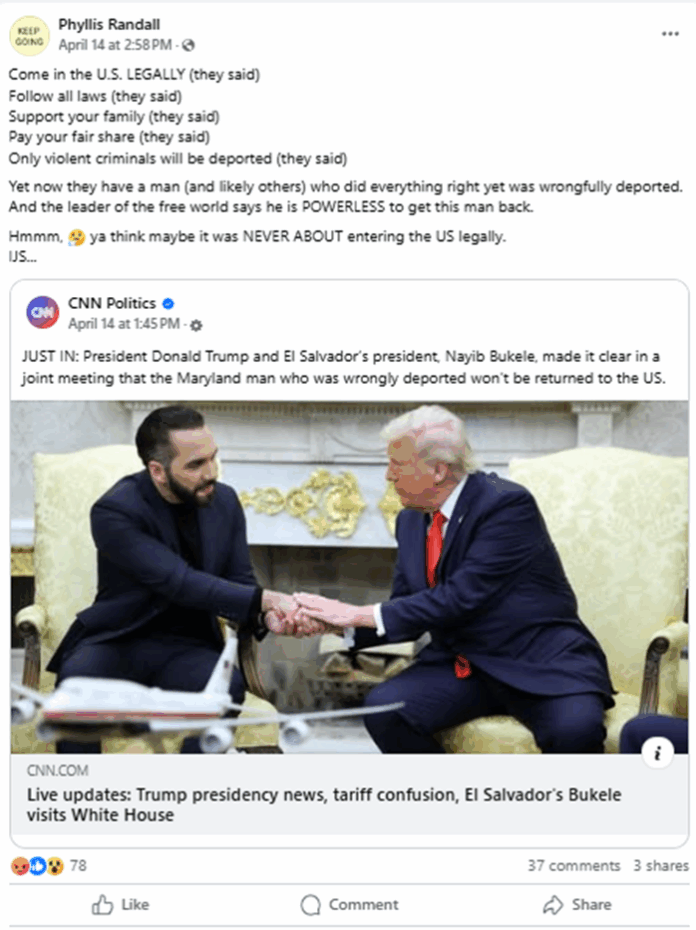April 17, 2025 – Leesburg, VA – A recent Facebook conversation involving Loudoun County Board of Supervisors Chair Phyllis Randall has ignited debate over local government involvement in immigration enforcement and deportation policies. The exchange, centered on the deportation of Kilmar Abrego Garcia, a Salvadoran man allegedly linked to the MS-13 gang, has raised questions about Loudoun County’s stance on supporting individuals facing deportation and the legal implications of such actions.
In a post dated April 14, Randall expressed frustration over the deportation of Abrego Garcia, suggesting that his removal was unjust despite his compliance with legal requirements. She wrote, “Come in the U.S. LEGALLY (they said) Follow all laws (they said) Support your family (they said) Pay your fair share (they said) Only violent criminals will be deported (they said) Yet now they have a man (and likely others) who did everything right yet was wrongfully deported.” Randall questioned whether immigration policies were ever truly about legal entry, implying broader systemic issues.
The post drew varied responses, including a comment from Ann Rust, who argued that Abrego Garcia had entered the U.S. unlawfully around 2011 and was ordered deported, though his removal was later withheld due to threats from a rival gang in El Salvador.
The Trump administration has claimed Abrego Garcia was a member of MS-13.
The conversation took a pointed turn when Karen Totty Petroff asked Randall, “Do we have a rapid response team in Loudoun County to help people if they are being arrested/deported without due process?” Randall’s response was cryptic: “Not that I, or anyone should discuss on a public social media page.” This reply has fueled speculation about whether Loudoun County maintains or is considering a mechanism to assist individuals facing deportation, potentially in conflict with federal immigration enforcement.
Critics argue that Randall’s comments and her ambiguous response to Petroff suggest Loudoun County may be exploring ways to obstruct federal deportation efforts, particularly in cases deemed unjust. MS-13 has been classified as a terrorist organization, and the Trump administration has prioritized deporting individuals with suspected gang ties. Any local effort to interfere with such deportations could be seen as violating federal law, which mandates cooperation with Immigration and Customs Enforcement (ICE) in certain contexts.
Abrego Garcia’s case has drawn national attention, with courts, including the U.S. Supreme Court, ruling that his March 2025 deportation to El Salvador’s Terrorism Confinement Center was erroneous due to a 2019 order granting him withholding of removal.
Neither Randall nor Loudoun County officials have publicly confirmed the existence of a “rapid response team” for deportation cases. The county’s official stance on immigration enforcement remains unclear.
The Loudoun County Government has not responded to requests for comment on the matter. As the debate over immigration policy intensifies, Randall’s Facebook exchange underscores the complex interplay between local governance, federal law, and community advocacy in addressing deportation cases.



NEWSLETTER SIGNUP
Subscribe to our newsletter! Get updates on all the latest news in Virginia.


